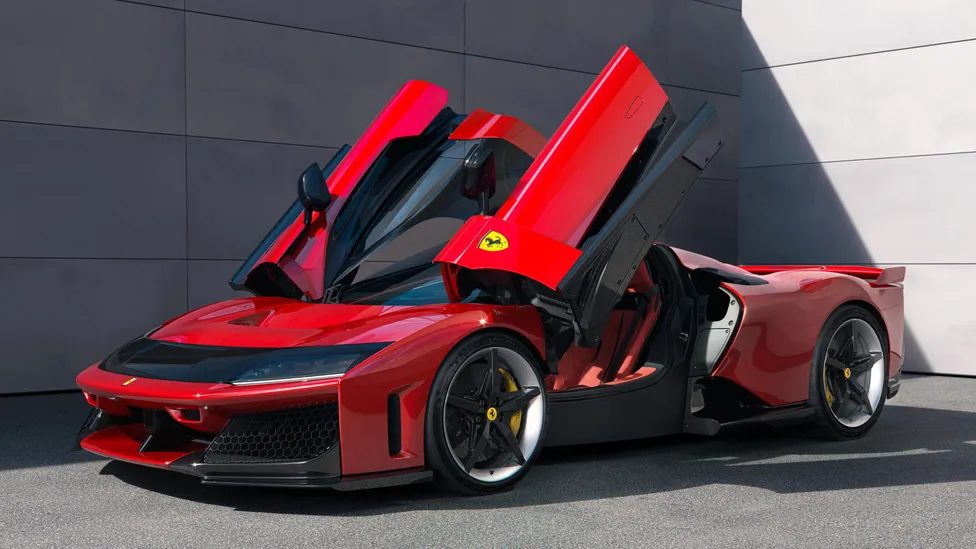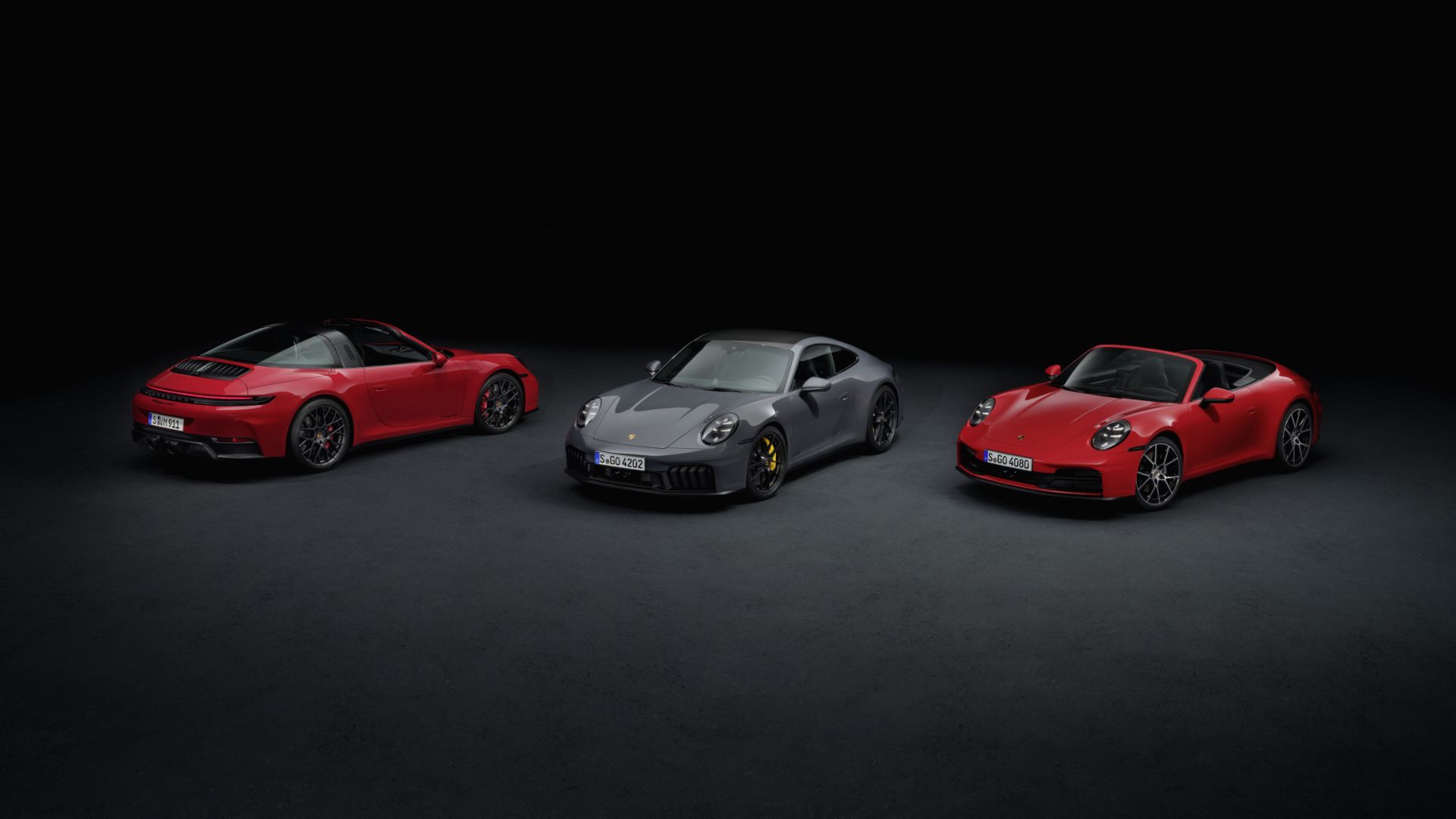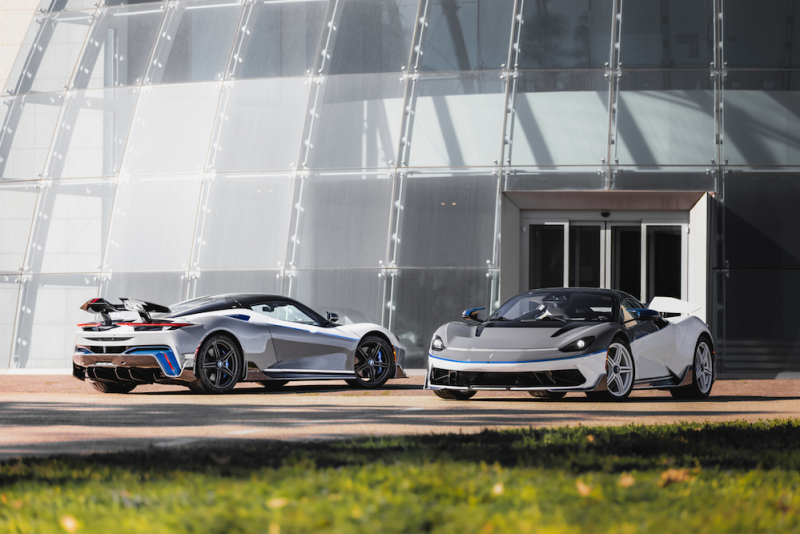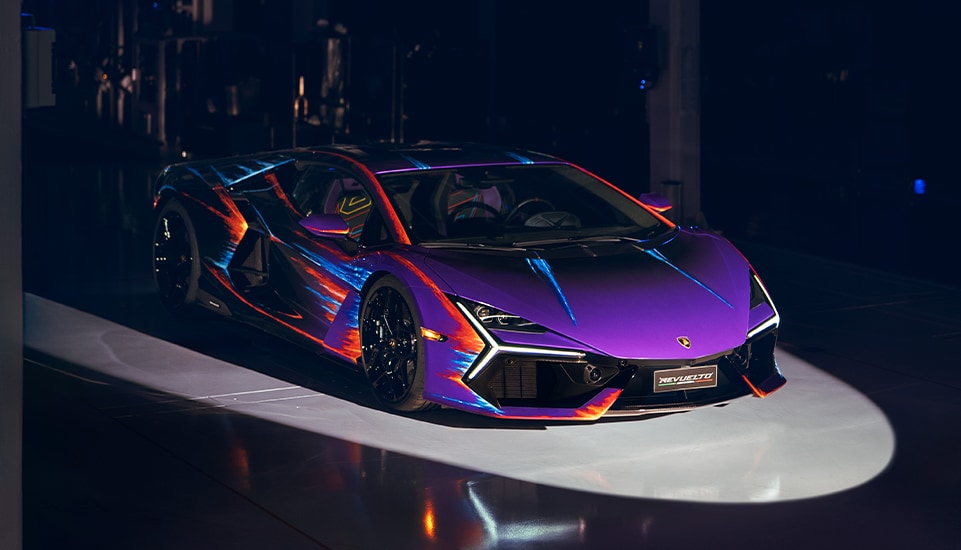It may not be as sleek as a classic Ferrari but the Formula 1 inspired F80 is one of the marques boldest-looking Ferrari’s yet ..
Ever since 1984, Ferrari has periodically released a new supercar that represented the pinnacle of cutting-edge technology and innovation of its era and that was destined to become enshrined in popular culture. Intended for the most discerning clients of the brand, these cars immediately became legends in their own lifetime, making an indelible mark not only on the history of Ferrari, but on the history of the automobile itself.
The latest addition to this family, the F80, is tasked with embodying the ultimate in engineering for an internal-combustion-engined vehicle and employs all the most advanced technological solutions, including latest-generation hybrid technology for the powertrain, to achieve unparalleled levels of power and torque. Every aspect of the architecture is conceived to maximise performance, from the carbon-fibre chassis and extreme aerodynamic solutions far beyond anything seen before in a road-legal car, to the new active suspension optimised to let the driver wring every ounce of performance from the car on the track.
Unlike anything else in the current supercar world, the F80 combines all these attributes with uncompromising levels of usability on the road, where it can be driven with ease. This ability shaped every choice made in terms of technology and architecture to achieve the goal, which at first sight seems impossible, of creating a track-oriented supercar that’s just as driveable as a production range model.
All this means that the driver will spend even more time in the car and can truly get to know and revel in its performance and the thrilling driving experience it offers. The architecture of the F80 is so extreme that the layout chosen results in a narrower cabin with a driver-centric layout, which nonetheless still offers excellent space and comfort for a passenger. This choice had crucial benefits in terms of minimising drag and weight.
The cockpit area therefore has a distinct single-seater feel, despite the fact that the car is homologated for two occupants, resulting in a architecture that we could call “1+”. The primary reason for this choice was to minimise width, to the benefit of aerodynamics (with less drag) and weight saving. This concept is completely in keeping with the motorsport world from which this car not only draws inspiration but also inherits technological solutions.



As has always been the case with the Ferrari supercars preceding the F80, the powertrain is based on the finest expression of technology in motorsport. The GTO and F40 were powered by a turbo V8, because Formula 1 cars used turbocharged engines in the 1980s. Today in both Formula 1 and the World Endurance Championship (WEC), powertrains consist of turbo V6 ICE engines mated with an 800 V hybrid system. It was only natural then that this architecture – the same architecture used by the 499P, which has taken two consecutive victories at the 24 Hours of Le Mans – would be transferred into the new F80.
Here though the powertrain is further complemented by the introduction, for the first time ever on a Ferrari, of electric turbo technology (e-turbo), which, with an electric motor installed between the turbine and compressor of each turbo, allows for an extraordinary specific power output and instantaneous response from low down in the rev range.
Aerodynamics play a key role on the F80, with solutions such as the active rear wing, rear diffuser, flat underbody, front triplane wing and S-Duct working in concert to generate 1000 kg of downforce at 250 km/h. This result is further enhanced thanks to the active suspension, which contributes directly to generating ground effect. Performance is boosted by the electric front axle, which brings four-wheel drive capability to make even more effective use of the torque and power on tap, and the new brakes with motorsports-derived CCM-R Plus technology.
As with all the supercars preceding it, the F80 marks the start of a new design era for Ferrari, with a more tense, extreme design language accentuating its race-bred soul. There are clear references to cues borrowed from aerospace, which underscore the cutting-edge technology and elegant engineering of each and every technical solution. But there are also nods to its hallowed progenitors which clearly declare the illustrious lineage of the F80.
With a starting price of $4million the F80 joins the pantheon of icons such as the GTO, F40 and LaFerrari, produced in a limited run of just 799 examples with deliveries expected early 2026.





